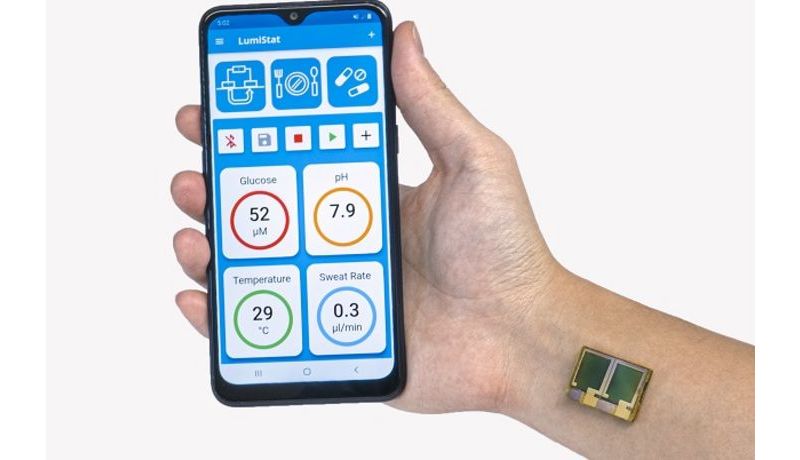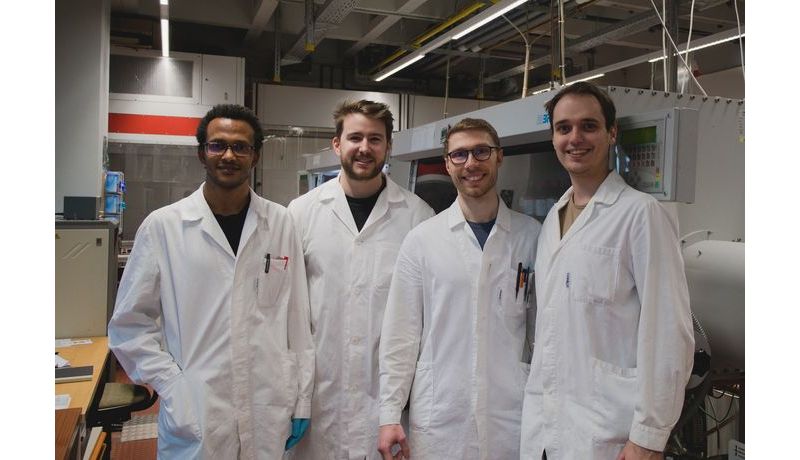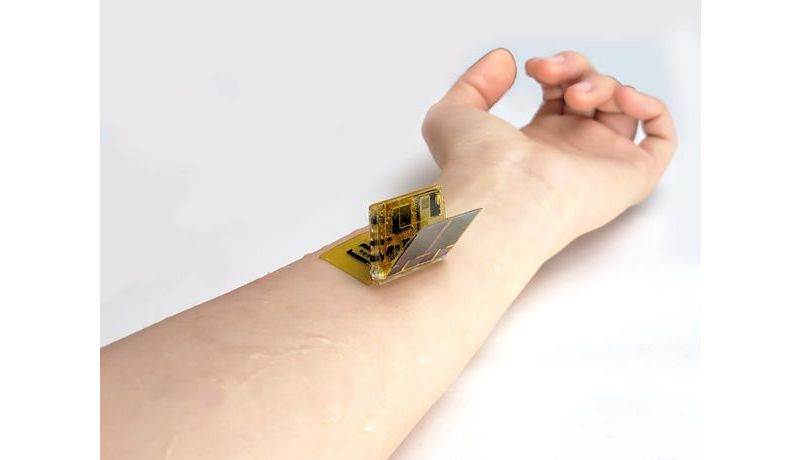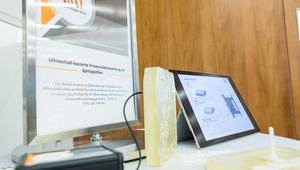A new metabolic biosensor intends to take advantage of the fact that many biomarkers can detect human sweat.
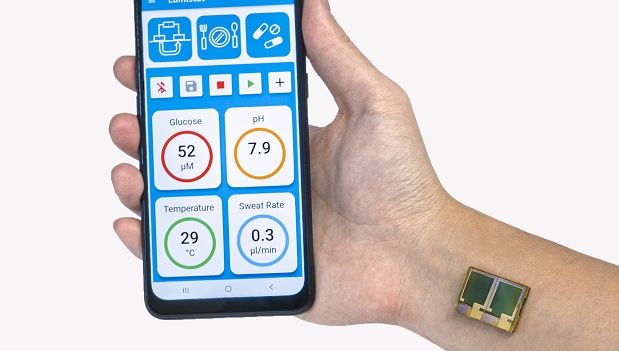
Together with their colleagues in the US, researchers at the Johannes Kepler University Linz have developed a new and improved technology.
When it comes to both medical diagnostics and fitness monitoring, the revolutionary sensor technology has the potential to be highly significant and valuable. Until now, the issue has been the high energy requirement of conventional monitoring devices, usually involving a considerable amount of physical activity in order to generate enough sweat to stimulate the biosensors. Too little, on the other hand, prevents any type of multifunctional analysis. The JKU (Department of Soft Matter Physics as well as the LIT Soft Material Lab; dept. head: Prof. Martin Kaltenbrunner) partnered with the California Institute of Technology (Caltech) in Pasadena (California, USA) to create a breakthrough wearable skin sensor powered solely by a lightweight and flexible solar cell that facilitates continual metabolic monitoring by analyzing body sweat.
Custom-Developed Solar Material
One of the study's lead authors, JKU researcher Stepan Demchyshyn, points out: "Tackling modern energy challenges requires extensive use of sustainable technologies on both large and small scales, opening up a wide range of potential uses such as for medical devices and the Internet of Things. Lightweight, adaptable and highly efficient photovoltaics are the key to making the next generation of wearable electronics truly self-sufficient."
A flexible and lightweight solar cell module approximately the size of a €2 coin provides the power needed to acquire data in any location where there is light. JKU physicists have succeeded in developing an innovative quasi-2D perovskite solar material to provide a versatile energy source. These solar cells not only work under normal sunlight, but also wherever the lighting is dimmer, during which they actually double in efficiency.
Enhanced using a compact wireless and portable sensor platform, the perovskite solar cell has been designed to easily collect and analyze a wide range of physicochemical data such as glucose levels, pH balance, salt concentration, sweat rate, and skin temperature. In addition, this comprehensive monitoring system can actively adjust its power consumption to maintain peak performance under varying lighting conditions.
When it comes to wearable technologies, Wei Gao (assistant professor of medical engineering and researcher at Heritage Medical Research Institute), and Ronald and JoAnne Willens (Caltech scholars), assert just how important a modular design and scalable manufacturing techniques are. Assistant Professor Gao’s team developed the welding sensor module. He considers the current platform as a versatile starting point that can be expanded on in the future to monitor other clinically relevant proteins and molecules: "Techniques such as laser engraving and inkjet printing are not only used in biosensor manufacturing to ensure efficient large-scale production, but it also keeps the cost down. As a result, advanced biomedical technologies become more accessible to a wider population."
Technology for Every Day Use
This groundbreaking technology lets users continuously monitor their metabolic markers throughout the day and without interruption, providing users with valuable information to support personal health management and individual diagnoses. The device can be used for a wide range of activities and the innovative microfluidic sweat extraction system eliminates the need to engage in strenuous physical activity. Breakthroughs such as these enable those who have limited mobility - including children, the elderly, or patients with mobility disorders - to take full advantage of this type of technology.
The current issue of the renowned journal Nature Electronics features an article about this research titled "An Autonomous Wearable Biosensor Powered by a Perovskite Solar Cell" focusing on the new potential of wearable technologies in healthcare, sports science, and to manage everyday health and wellness.







